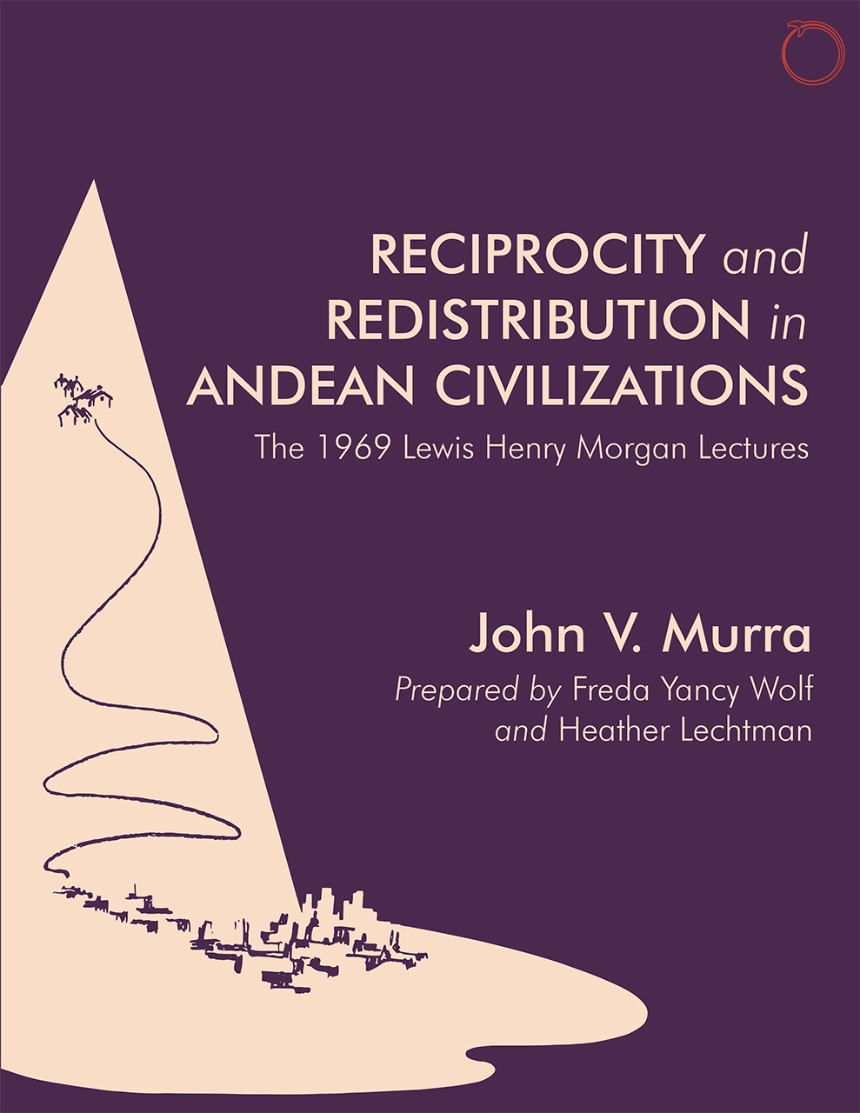9780997367553
9781912808168
Distributed for HAU
Reciprocity and Redistribution in Andean Civilizations
The 1969 Lewis Henry Morgan Lectures
John V. Murra’s Lewis Henry Morgan Lectures, originally given in 1969, are the only major study of the Andean “avenue towards civilization.” Collected and published for the first time here, they offer a powerful and insistent perspective on the Andean region as one of the few places in which a so-called “pristine civilization” developed. Murra sheds light not only on the way civilization was achieved here—which followed a fundamentally different process than that of Mesopotamia and Mesoamerica—he uses that study to shed new light on the general problems of achieving civilization in any world region.
Murra intermixes a study of Andean ecology with an exploration of the ideal of economic self-sufficiency, stressing two foundational socioeconomic forces: reciprocity and redistribution. He shows how both enabled Andean communities to realize direct control of a maximum number of vertically ordered ecological floors and the resources they offered. He famously called this arrangement a “vertical archipelago,” a revolutionary model that is still examined and debated almost fifty years after it was first presented in these lecture. Written in a crisp and elegant style and inspired by decades of ethnographic fieldwork, this set of lectures is nothing less than a lost classic, and it will be sure to inspire new generations of anthropologists and historians working in South America and beyond.
Murra intermixes a study of Andean ecology with an exploration of the ideal of economic self-sufficiency, stressing two foundational socioeconomic forces: reciprocity and redistribution. He shows how both enabled Andean communities to realize direct control of a maximum number of vertically ordered ecological floors and the resources they offered. He famously called this arrangement a “vertical archipelago,” a revolutionary model that is still examined and debated almost fifty years after it was first presented in these lecture. Written in a crisp and elegant style and inspired by decades of ethnographic fieldwork, this set of lectures is nothing less than a lost classic, and it will be sure to inspire new generations of anthropologists and historians working in South America and beyond.
Reviews
Table of Contents
Foreword
Introduction
Lecture One
The Archipelago Model of Vertical Control in the Andes
Lecture Two
Reciprocity, the Anthropological Alternative to Exotic Explanations
Lecture Three
The Inca Attempt to Destroy the Markets
Lecture Four
Structural Changes in Tawantinsuyu prior to the European Invasion
Glossary
Mapa Ecológico del Perú
Juhn V. Murra Bibliography
Reference List
Index
Introduction
Lecture One
The Archipelago Model of Vertical Control in the Andes
Lecture Two
Reciprocity, the Anthropological Alternative to Exotic Explanations
Lecture Three
The Inca Attempt to Destroy the Markets
Lecture Four
Structural Changes in Tawantinsuyu prior to the European Invasion
Glossary
Mapa Ecológico del Perú
Juhn V. Murra Bibliography
Reference List
Index

